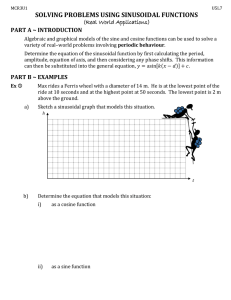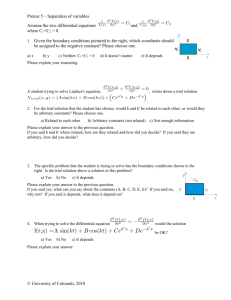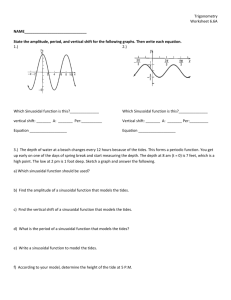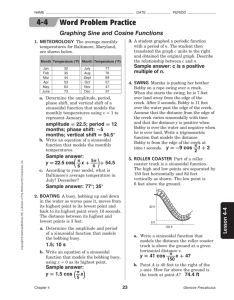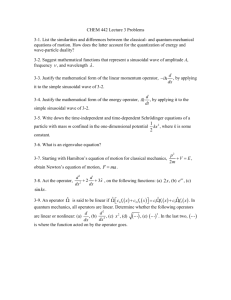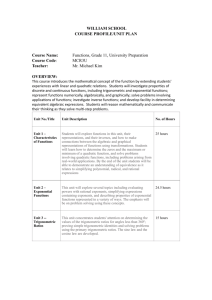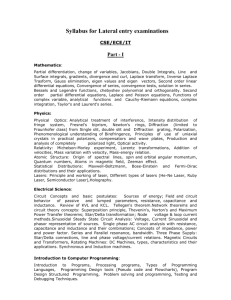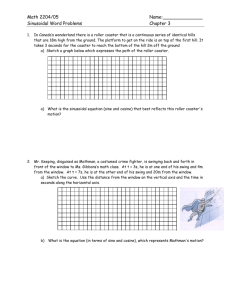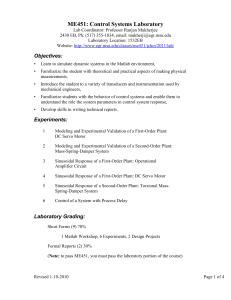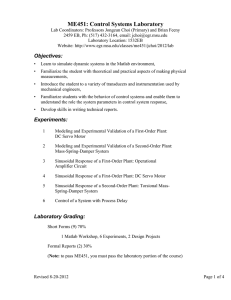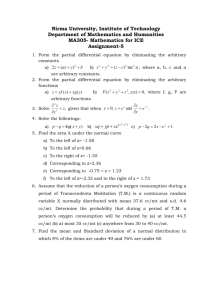survey14
advertisement
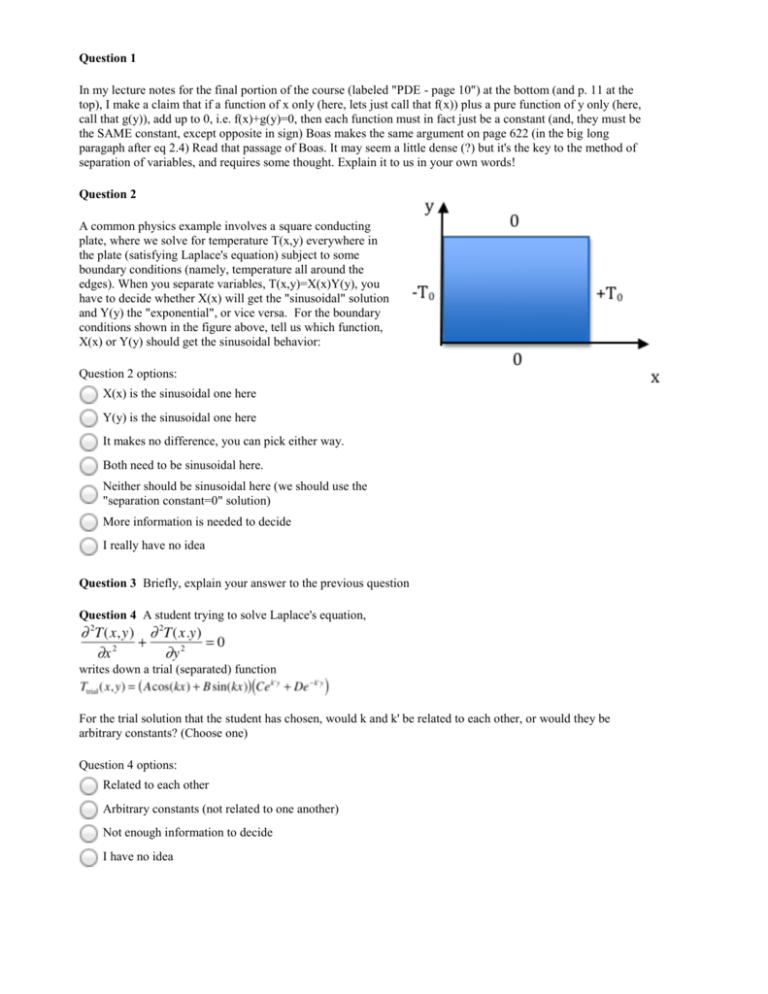
Question 1 In my lecture notes for the final portion of the course (labeled "PDE - page 10") at the bottom (and p. 11 at the top), I make a claim that if a function of x only (here, lets just call that f(x)) plus a pure function of y only (here, call that g(y)), add up to 0, i.e. f(x)+g(y)=0, then each function must in fact just be a constant (and, they must be the SAME constant, except opposite in sign) Boas makes the same argument on page 622 (in the big long paragaph after eq 2.4) Read that passage of Boas. It may seem a little dense (?) but it's the key to the method of separation of variables, and requires some thought. Explain it to us in your own words! Question 2 A common physics example involves a square conducting plate, where we solve for temperature T(x,y) everywhere in the plate (satisfying Laplace's equation) subject to some boundary conditions (namely, temperature all around the edges). When you separate variables, T(x,y)=X(x)Y(y), you have to decide whether X(x) will get the "sinusoidal" solution and Y(y) the "exponential", or vice versa. For the boundary conditions shown in the figure above, tell us which function, X(x) or Y(y) should get the sinusoidal behavior: Question 2 options: X(x) is the sinusoidal one here Y(y) is the sinusoidal one here It makes no difference, you can pick either way. Both need to be sinusoidal here. Neither should be sinusoidal here (we should use the "separation constant=0" solution) More information is needed to decide I really have no idea Question 3 Briefly, explain your answer to the previous question Question 4 A student trying to solve Laplace's equation, writes down a trial (separated) function For the trial solution that the student has chosen, would k and k' be related to each other, or would they be arbitrary constants? (Choose one) Question 4 options: Related to each other Arbitrary constants (not related to one another) Not enough information to decide I have no idea Question 5 Please explain your answer to the previous question. If you said k and k' were related, how are they related and how did you decide? If you said they are arbitrary, how did you decide? Information. Every week,…
